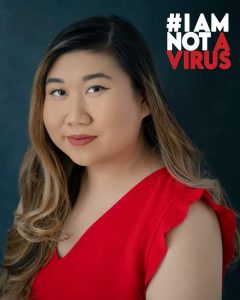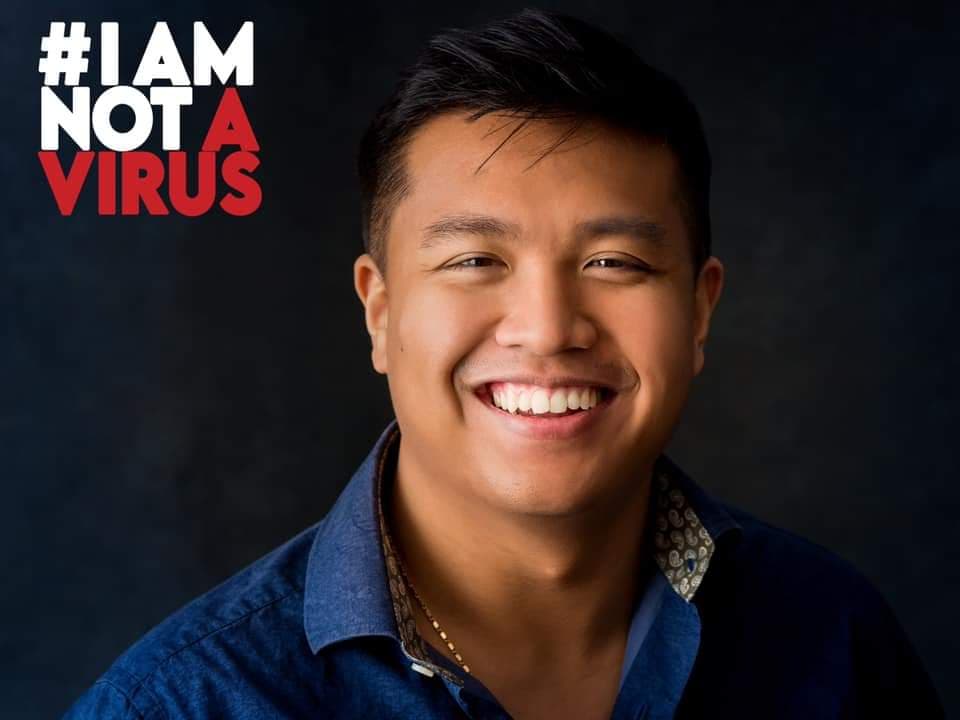Sometimes it’s a microaggression – a sideways glance. Something muttered under the breath. A mask pulled tighter to the face as they walk past.
Other times, it’s more overt – Harassment. Shouting. Spitting. Threats of violence or bodily harm.
More than 30 percent of Americans have witnessed someone blaming Asian people for the COVID-19 pandemic, according to a recent national survey, and those incidents occur in a number of forms. More than 1,500 cases of coronavirus-related discrimination directed toward Asian people have been reported since mid-March, says the Asian Pacific Policy and Planning Council, which has set up an online system to collect reports of racism, discrimination, and physical threats against Asian and Asian American people.
The entire situation was frustrating for Kelly Ha.
Ha, from West Hartford, is a Master’s of Social Work student in the UConn School of Social Work. While she hadn’t experienced an incident herself, stories coming in from Connecticut and around the country – and the fear she saw in her friends and family – bothered her.
“My family members are constantly afraid to leave the house, because they fear they’re going to be attacked,” she says. “They’re afraid they’re going to be hit, or they’re going to be verbally abused. My privilege is that I haven’t felt that, yet. But this is happening, and I think it’s really important that we bring awareness to this.”
That’s when a new campaign, #IAMNOTAVIRUS, came into Ha’s life.
Created in response to growing reports and outright displays of anti-Asian rhetoric and behavior around COVID-19, #IAMNOTAVIRUS started as a portrait project – founded by West Hartford photographer Mike Keo – that sought to portray Asian Americans as the neighbors, community members, and business owners that they are.

Each portrait was accompanied by a three-item “I Am” statement describing who the person is, in their own view, beyond their race or ethnicity, which stands in contrast to the hashtag that describes what they are not: a virus.
“The statements are about who you are as a relatable person in the community, to stop the dehumanization of the Asian community as just being a virus,” Ha says. “So, for me, my three ‘I Ams’ are that I am a Master’s of Social Work student, I am a mental health advocate, and I am a health care worker.”
Ha sat for a portrait early on in the campaign, before social distancing and stay-at-home measures took effect, but she didn’t want to just be an image in the campaign. Part of a long history of political social work organizers, she wanted to do more. She joined the campaign as its outreach coordinator, in charge of connecting with those who reached out through social media and email, connecting with academics and other stakeholders, and working with a team of influencers to create content in order to expand the campaign’s reach.
Now serving as the campaign manager, Ha is part of a team of eight people who are active on social media, conducting media interviews, planning new forms of outreach – like podcasting and a magazine – and interfacing with members of the Asian American community in the United States and abroad who have stories to tell about their experiences with COVID-19-related racism. The campaign is also focused on mental health – near and dear to Ha, as a social work student – by connecting community members with available mental health resources and planning a series of videos with tips, advice, and coping techniques from mental health professionals.
“Our campaign works to raise awareness,” says Ha. “The Asian community doesn’t really have a voice. I feel like people know we are present, but don’t always hear us. We want everyone to understand that this is a very human campaign. We want everyone to understand that we hear you, and that you deserve to be here.”
The idea of the silent or voiceless Asian American is a political image that has persisted, according to Jason Oliver Chang, associate professor of history and director of UConn’s Asian and Asian American Studies Institute.
“Even though they’ve been there, Asian American political voices have not been recognized,” says Chang. “In the 19th century, Asian immigrants were thought of as disposable workers, and the idea of the disposable worker has zero investment in the political participation or the political opinions of these members of society. That opinion and that characterization was reflected in immigration laws and court decisions so that even though Asian Americans have been very loud and have had ardent political voices, the characterizations don’t recognize that as an Asian American identity.”
Asian Americans were historically used as a political “model minority” to argue against the civil and equal rights movements and activist groups that were seen as more radical, Chang says.
“The silent Asian American was a popular political image because it helped the establishment argue against more radical reforms, or even the modest civil rights reforms that were passed in 1965,” he says. “That image has persisted, and now with greater numbers, the ‘voice of Asian Americans’ is very diverse.”
What also isn’t new, according to Chang, is the treatment of Asian Americans in particular and minority groups in general during domestic or global incidents or geopolitical events.
“There’s often a salient ethnicity that becomes targeted, and then that often gets extended more broadly,” Chang says. “While there may be a particular group that’s is in the crosshairs, publicly it becomes an anti-Asian experience, a function of the long-standing stereotype that all Asians are the same.”
He adds, “I think one of the things that makes all racism so virulent is that it’s practiced on other groups before it becomes an issue for another group. One of the reasons why things picked up so quickly in the United States is because of the trends of targeting Muslims, Latinos, Mexican Americans, Central American caravans at the border – the pattern of demonization and targeting groups publicly by the administration and other politicians has led to a kind of routine, and these have been recognized as ways of expressing political belonging, by participating in persecution.”
Ha and #IAMNOTAVIRUS want to change that dynamic, though, in the case of discrimination toward Asian Americans during the ongoing pandemic. They’re pushing back and raising their voices, and the positive response to the campaign has come from both within and outside of the Asian American community.
“This disease itself doesn’t discriminate, people discriminate,” she says. “We want everybody to be involved and to support each other.”
To learn more about or to connect with the campaign on social media, visit IAMNOTAVIRUS.info.



